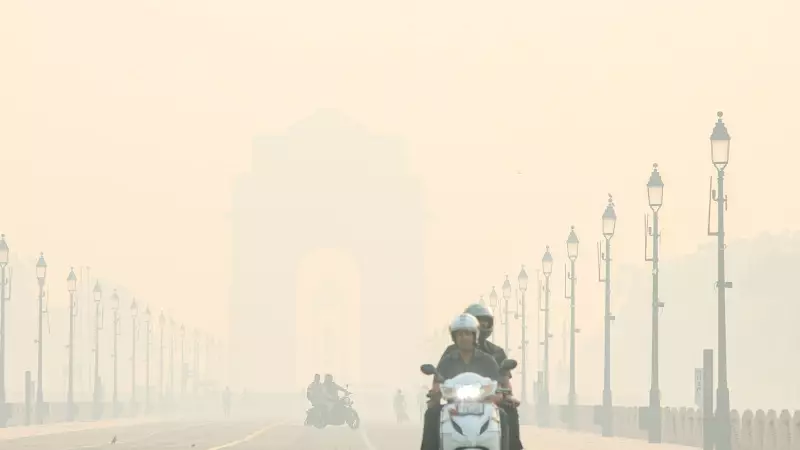
The festive cheer of Diwali quickly turned into a respiratory nightmare for Delhi residents as the capital's air quality plummeted to 'Very Poor' levels on Monday morning, triggering yet another round of political fireworks between the ruling Aam Aadmi Party and the opposition Bharatiya Janata Party.
Air Quality Takes a Nosedive
According to data from the Central Pollution Control Board, Delhi's overall Air Quality Index (AQI) settled at 358, firmly in the 'very poor' category. The situation was particularly dire in several monitoring stations across the city, with Anand Vihar recording a staggering AQI of 415 and Wazirpur at 404, both crossing into the 'severe' zone.
Meteorological conditions played a significant role in the rapid deterioration, with calm winds and low temperatures creating a toxic trap that prevented the dispersal of pollutants. The familiar winter haze returned with a vengeance, reducing visibility and leaving residents complaining of burning eyes and breathing difficulties.
Political Battle Heats Up
The deteriorating air quality immediately sparked a fresh political confrontation, with both BJP and AAP leaders engaging in a bitter blame game over who bears responsibility for Delhi's annual pollution crisis.
Delhi BJP president Virendra Sachdeva launched a sharp attack on the AAP government, accusing them of complete failure in implementing pollution control measures. "The Arvind Kejriwal government has completely failed to control pollution in Delhi," Sachdeva stated, pointing to the alleged ineffectiveness of the firecracker ban and other preventive measures.
The BJP leader didn't spare the Punjab government either, blaming AAP's state administration for the ongoing stubble burning that significantly contributes to Delhi's pollution woes during this season.
AAP Fires Back
Not one to take the criticism lying down, the AAP government mounted a strong defense of its actions. Delhi Environment Minister Gopal Rai countered the BJP's allegations by highlighting the comprehensive Winter Action Plan implemented by the government.
"The Delhi government has been running a campaign to control pollution for the last one month under the Winter Action Plan," Rai asserted. He emphasized that while Delhi had taken significant measures, the problem of stubble burning from neighboring states remained a major challenge beyond their direct control.
The Real Victims: Delhi's Residents
Caught in the crossfire of political accusations are Delhi's millions of residents, who face the health consequences of the deteriorating air quality. Doctors across the city reported an increase in patients complaining of respiratory issues, throat infections, and exacerbation of asthma symptoms.
Environmental experts expressed concern that without immediate and concerted action from all stakeholders, the situation could worsen further as winter sets in completely. The familiar cycle of blame and counter-blame, they warned, does little to address the immediate health emergency facing the city's population.
As the political drama unfolds, Delhiites are left wondering when their right to breathe clean air will take precedence over political point-scoring and when concrete, collaborative solutions will emerge to tackle this annual environmental crisis.





